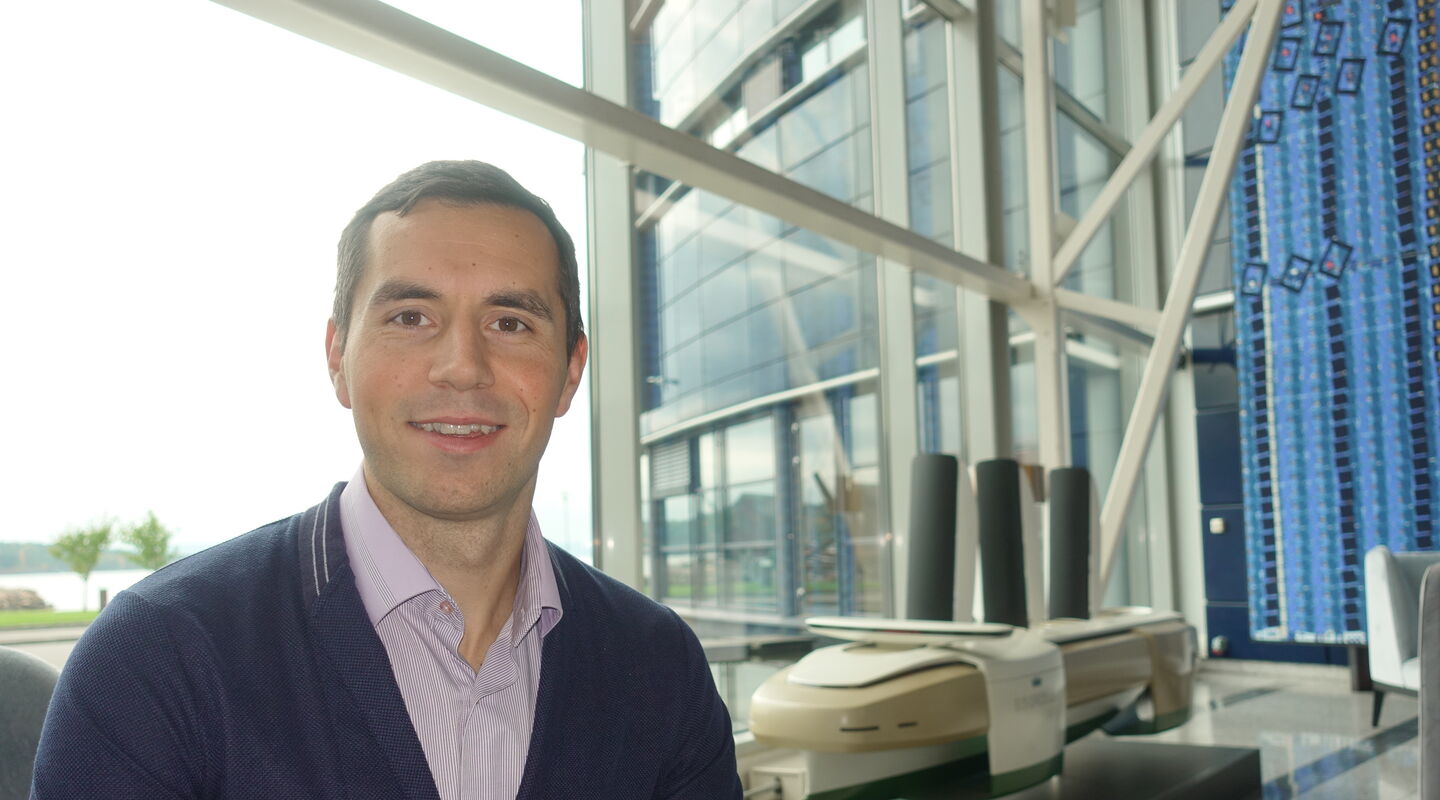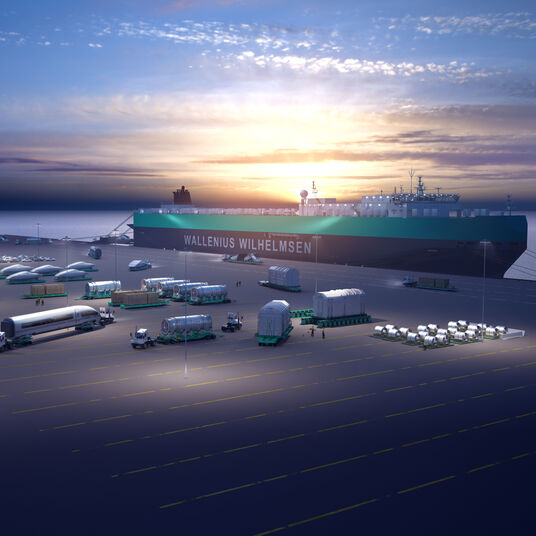A day in the life of a machinery engineer
Sergey Ushakov is a machinery engineer in our marine operations management team. He explains what is takes to steer digitalisation in shipping and how data plays a crucial role in reducing greenhouse gas emissions from vessels across our fleet.

Sergey, you joined the marine operations management team in November 2019. What was it that attracted you to the role of machinery engineer?
I wanted to make the shift to working in industry and put my academic background into practice. With so much discussion happening around decarbonisation in the shipping sector, now seemed like the right time.
I have a PhD in marine technology, specialising in zero emissions solutions and efficiency improvements, but the impact you make can be limited when you’re stuck behind a desk. I’ve always been a practical person and I wanted to make more of a contribution to the industry. This role allows me to do just that.
As a team, we’re always looking to the future, so another important part of my role is to evaluate all the technologies currently available and decide whether these could offer tangible benefits that will help on our journey to zero carbon transport.
Describe a typical working day for you.
It’s hard to describe a typical day as it varies a lot. It could involve investigating technical problems on one of our vessels, or analysing information for One Operation, our digital transformation programme that’s capturing and processing live data from our vessels to build a picture of how the fleet is operating.
I’m responsible for data quality, which is a vital part of our digitalisation efforts. Increasingly, our customers want access to our efficiency and emissions data, and we’ll get enquiries from other departments across the company asking if we can support them with a customer request.
As a team, we’re always looking to the future, so another important part of my role is to evaluate all the technologies currently available and decide whether these could offer tangible benefits that will help on our journey to zero carbon transport.
What’s the best thing about your role?
That I’m constantly learning. Often, what I do is not only new territory for me, but for Wallenius Wilhelmsen too, and that makes it exciting. Whether I’m helping to assess certain fuels or investigating how we can minimise air pollution at port, I enjoy finding solutions to these challenges. It’s good to get out of your comfort zone and this role is always a learning curve.
Digitalisation also brings different aspects of the company together. It helps to connect different teams, whether that’s commercial or the crews onboard our vessels, while also adding value for our customers. It’s a good feeling to come to the office and know that you’ll be working on something that makes a real difference.
Why is the digitalisation of our operations so important?
There’s always value in collecting data. As well as helping us to make improvements in fuel usage and emissions, it enables us to be totally transparent about our operations, which gives us a competitive edge. That’s because in order for our customers to improve the sustainability of their own operations, they need to take into account the full lifecycle of their products, including ocean transportation. By having access to real-time efficiency and emissions data, we can offer them a better service and help them make informed decisions.
How does the work you do have the potential to reduce vessel emissions across the fleet?
Without access to relevant information, you can’t make any significant steps to improving sustainability across the fleet; it’s as simple as that. As part of One Operation, we’re currently streaming live data from various onboard components and comparing this with baseline information on engine performance.
Armed with this, we can identify when our engines are not operating optimally and implement changes to improve efficiency and ultimately reduce emissions.
What might people not know about your job?
A lot of the work the marine operations team does is behind the scenes, so people might not really understand the extent of what we do. It’s not simply a question of overseeing the day-to-day operation of vessels; we support the entire fleet when it comes to making crucial decisions that help us to meet not only industry regulations but our environmental goals.
We assess different solutions, technologies and fuels to see if they are viable options to be rolled out across our fleet.
What expertise and qualities do you need in your role?
You need to be a really good team player. We work with complex challenges that can’t be solved by one person alone. Our team is made up of electrical engineers, data scientists, former ship captains. They all bring different types of experience to the table, so it’s important to know how to play to people’s strengths.
An engineering background is essential, and some understanding of marine technology is helpful, as is a broader knowledge of emissions and sustainability.
Attention to detail and accuracy certainly come in handy, but at the same time you have to be very strategic because the decisions you make will have implications for the entire fleet, not just one particular vessel.
Finally, communication is crucial. To be an effective problem solver, you have to be able to find the right words to communicate with the crew who are operating the vessels. Ultimately, you need to be able to keep several balls in the air at once, because there are a lot of activities happening in tandem.


